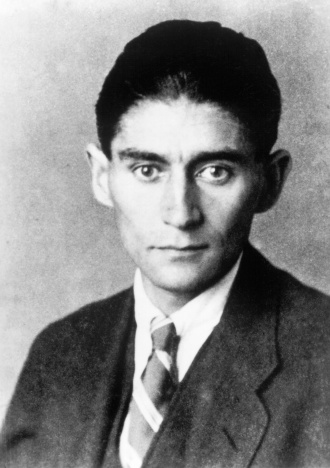"The Metamorphosis" by Peter Kuper is a comic book
of the original adaption. It almost expressed the story and talking of original
“The Metamorphosis”. It also had some change, or we can say it is Kuper’s
understanding of The Metamorphosis. For historical reasons, Kuper changed some
importance when he created the book, but it cannot hinder we read the work and made
comment it.
 Kuper changed some details in his work. In the comic
book, the father is a fat, ugly and old man. When he draws the hero, author
gives him a good face. As the insect, the face looks like a human face. It has a
wealth of expression, and it is pitiful when people read. It is an important
point of comic. The comic usually need to prettify advantages and uglify
disadvantages. The author often uses overstated technique of expression to draw
the most important things. Kuper omitted many details like the father’s feeling
and the family status, and he highlight the things he wants to say.
Kuper changed some details in his work. In the comic
book, the father is a fat, ugly and old man. When he draws the hero, author
gives him a good face. As the insect, the face looks like a human face. It has a
wealth of expression, and it is pitiful when people read. It is an important
point of comic. The comic usually need to prettify advantages and uglify
disadvantages. The author often uses overstated technique of expression to draw
the most important things. Kuper omitted many details like the father’s feeling
and the family status, and he highlight the things he wants to say.
In summary, Kuper’s book can save reader’s time and help
reader to know the story. It also changed some details and some original
meaning. If we just want to know the story, Kuper’s book is a good choice, but
if we want to consider the original meaning or know Kafka, it is better to read
the original book.
Work
Cited
Dale, Graham R., et al.
"Exploiting the e-Serialization of nano-fiction to enhance undergraduate
health and safety lectures: A back to the future perspective." Journal of
Chemical Health & Safety 19.3 (2012): 23+. Academic OneFile. Web. 30 May
2012.





